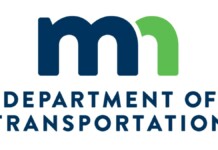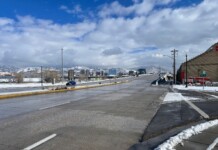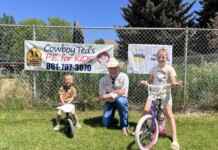Hint: It’s cars.
By Darrell Owens — I was split on whether gun deaths or traffic deaths are the biggest death cults in the United States, but I’ve decided it goes to cars. However neutered gun control is, it’s not a popular mandate in polling but rather a quirk in effective lobbying. Car deaths and automobile manufacturer deregulation are a completely different level of insanity. Unfortunately, car centrism is the popular mandate in that most Americans really don’t care about people being killed by cars, even if the victims are their own family members, and are seemingly resistant to taking the necessary systemic steps to save lives.
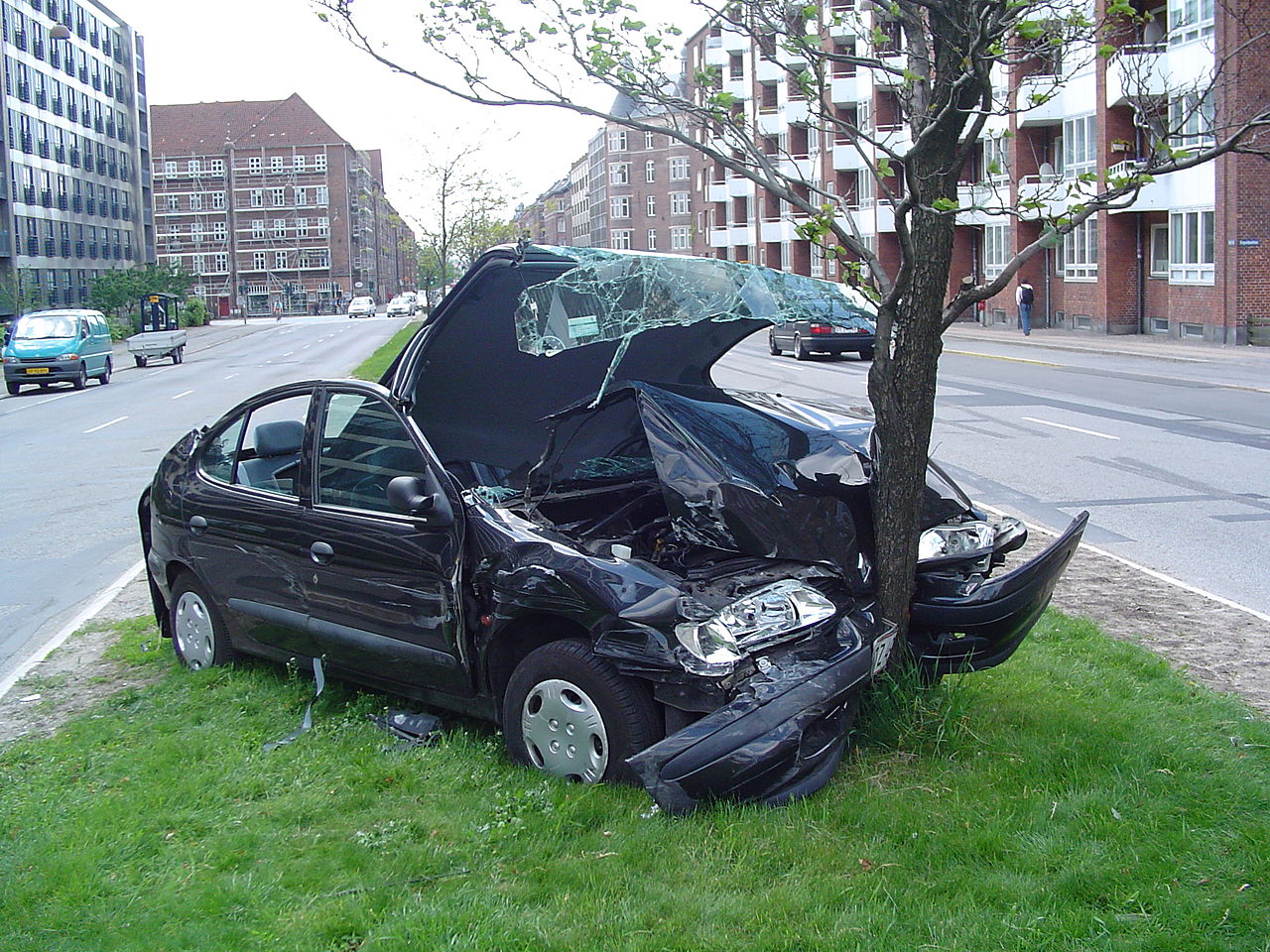
Controlling the mayhem that vehicles cause is suffering defeats all over the country. Most prominently, the delay of congestion pricing in New York City, the one city in this country where living without a car is common. No American city has made notable strides in reducing car dependency with the best of the worst being Jersey City, which has impressively developed a better bike network but little else. Why can’t the anti-car movement get up and over this issue?
Firstly, I’ve realized that popular and widely held beliefs often trickle down from intelligentsia and academia first before becoming popular among the masses. I don’t think that major institutions like news sites take traffic violence seriously. They lust after shootings but if someone’s hit by a car it makes a bulletin in the round-up, only if the person died. Not much care in the world for the lifelong injuries, only fatality statistics. Even the New York Times published someone trying to blame teenage cyclists for their deaths by drivers recently.
The latest version of the climate movement also screwed up by pretending that individual transportation changes wasn’t necessary to reduce carbon emissions. This in part feels like it was because a lot of the climate movement was led by young people rather than climate scientists. Their most famous slogan: “70% of emissions are caused by 100 companies” purposely obscures that those 100 companies are oil companies. Oil company’s emissions are primarily evident in mass transportation; particularly cars. When the climate movement did discuss traffic violence, they mostly spoke in the context of popularizing EVs, which is good, but uncomfortably ignored particle and manufacturing emissions EVs also contribute to. It would’ve been a better message to do what a lot of European cities did and push cities to decarbonize by transitioning the population towards mass transportation, bikes, walking and EVs. It was a prime opportunity to inform liberal urbanites both of the climate harm of cars but also the health toll in traffic deaths.
Instead, the 2010s climate movement pushed the idea that transportation consumption was less important than going after fossil fuel suppliers. Now they’re busy spray-painting Stonehenge or doing weird stunts. Thus, most liberal cities that considered themselves pro-climate made these meaningless climate declarations and have proven cowardly to implement any of them if they impede parking or driving. The intensity that urbanite Americans will go through to defend the right to drive a car on every inch of public space is unbelievable, and unlike other issues, isn’t polarized between liberal and conservative.
My hometown of Berkeley, California is an interesting display of this. Berkeley has a high concentration of climate scientists due to the University of California. Even the former U.S. Science Envoy has opined on our city’s zoning policy. The town is notoriously liberal, and the vast majority of the population has a four-year degree or greater. Berkeley is fairly non-car dependent compared to most California cities, second only to San Francisco of all cities west of the Mississippi. Despite the city being highly educated, the populace is just as prone to reactionary defenses of “the right to drive and park wherever and however” as any climate denier town in Republican America.
Our town suffers from a regular issue of drivers crashing into each other, pedestrians and cyclists. Like most cities in the United States, the lockdown unleashed a wave of anti-social activity that has caused severe reckless driving and a major spike in traffic deaths. If there’s any time to focus on people dying from automobile crashes, it’s now, as car-based death remain at 21st century highs.
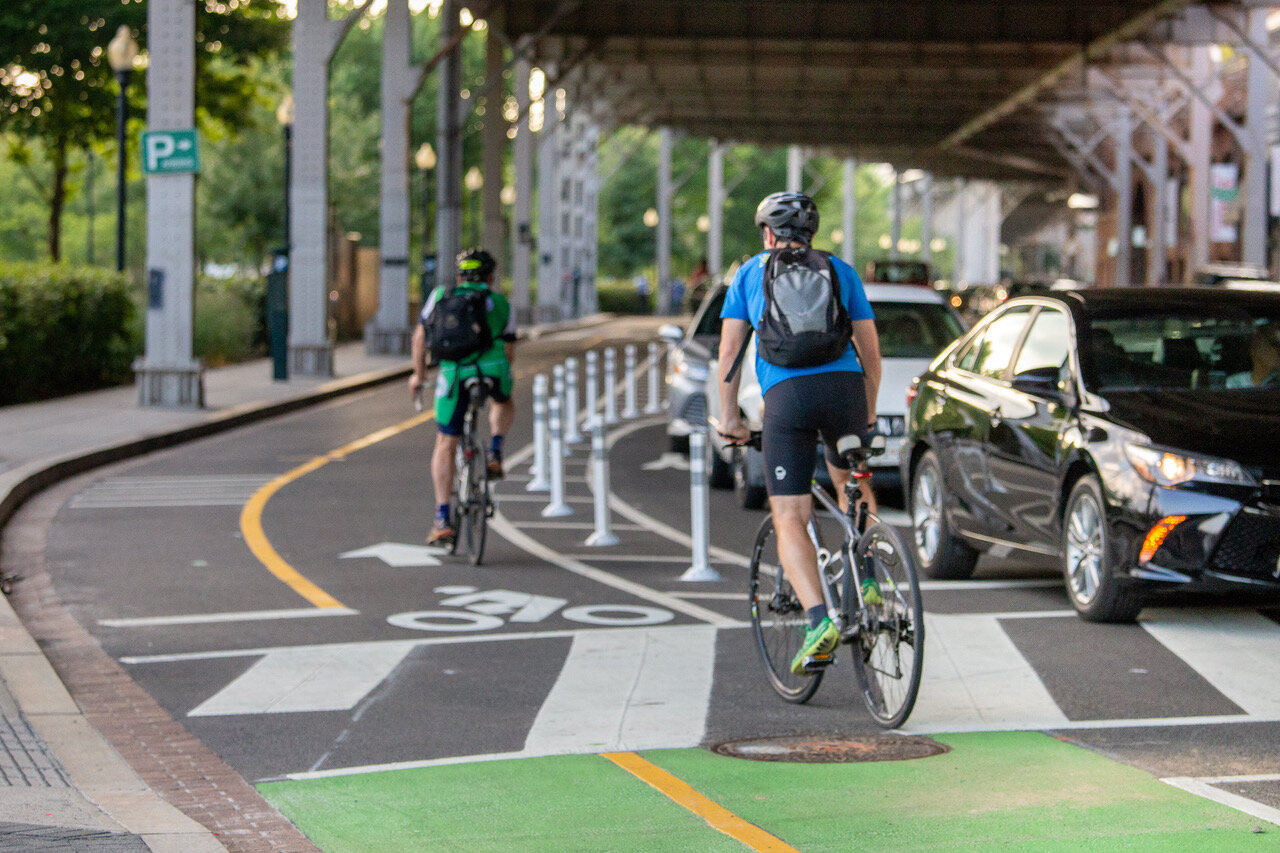
Yet in the numerous local meetings I’ve attended to propose minor street improvements—typically involving the addition of bike lanes and the removal of a few parking spaces—people don’t appear to be concerned about traffic fatalities. They say they care of course, but they’re unwilling to make any changes to save lives in the name of parking and driving more easily. These are ordinary liberals who with any other issue would be critical of corporations, capitalism and carbon-intensity, but not with their cars.
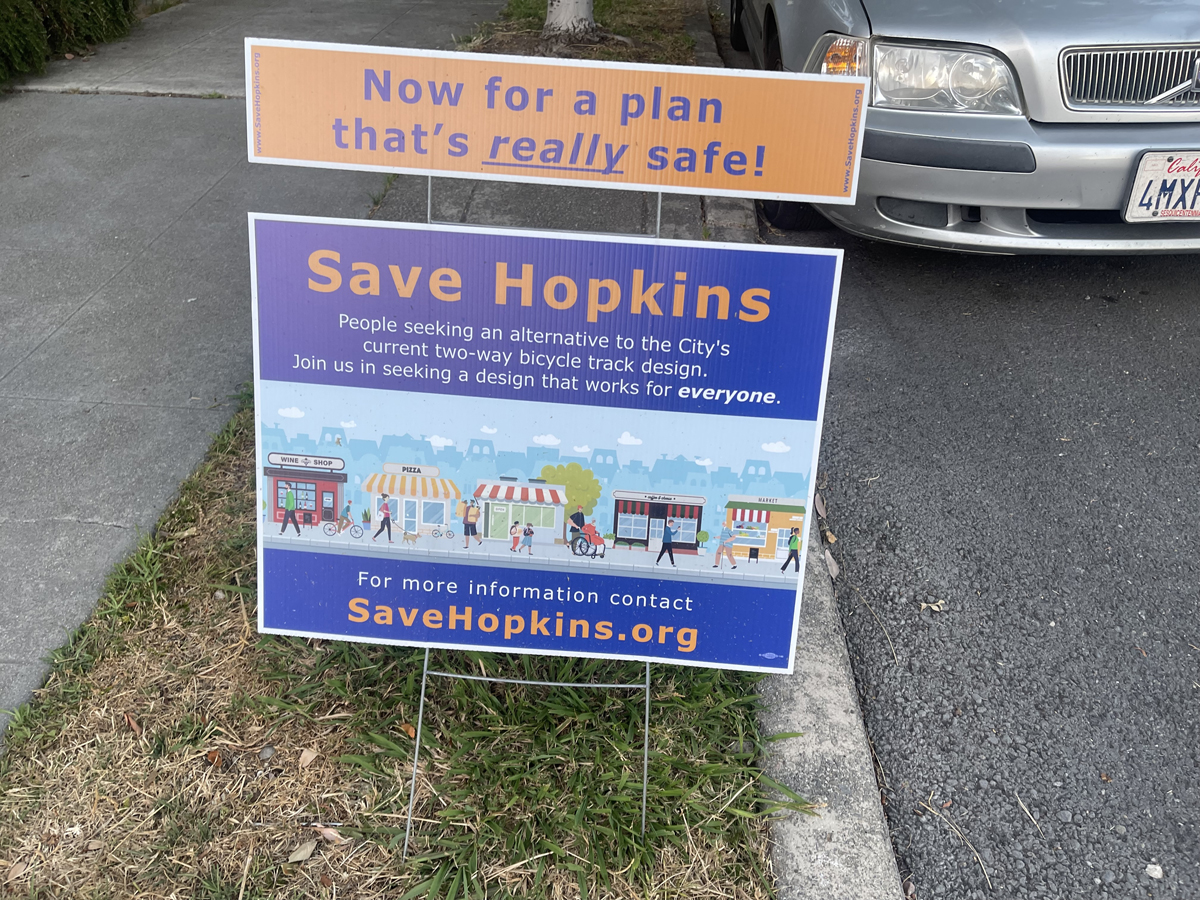
When a simple bike lane (on Hopkins Street) was proposed in my neighborhood next to an old commercial district covered with ample parking lots, I didn’t even bother to comment. Yet this issue has blown up to become the single most divisive issue in Berkeley. It’s beyond Israel-Palestine, beyond taxes or anything else. Simply scrapping some on-street parking spaces so bicyclists could safely travel east and west resulted in:
-
- Conspiracy theories sourced from Alex Jones about Agenda 21 being plastered on respectable small businesses.
- The complete and total gutting of our transportation department because no staff could sustain the torrent of abuse.
- Every other lawn in the city — and out of the city — espousing support or opposition for a small bike lane.
- Two dueling ballot measures, one which proposes road paving only so that drivers can speed easier. And one that proposes street paving with safety improvements for bus riders, pedestrians and cyclists as well as drivers.
I was talking to national news reporters who told me how these projects wouldn’t even make the back page in Asia or Europe. Yet this liberal town is ready to go to war over it. Many of the opponents of bike lanes, wider sidewalks and bus lanes are the same people with vague climate signs on their front lawns and windows.
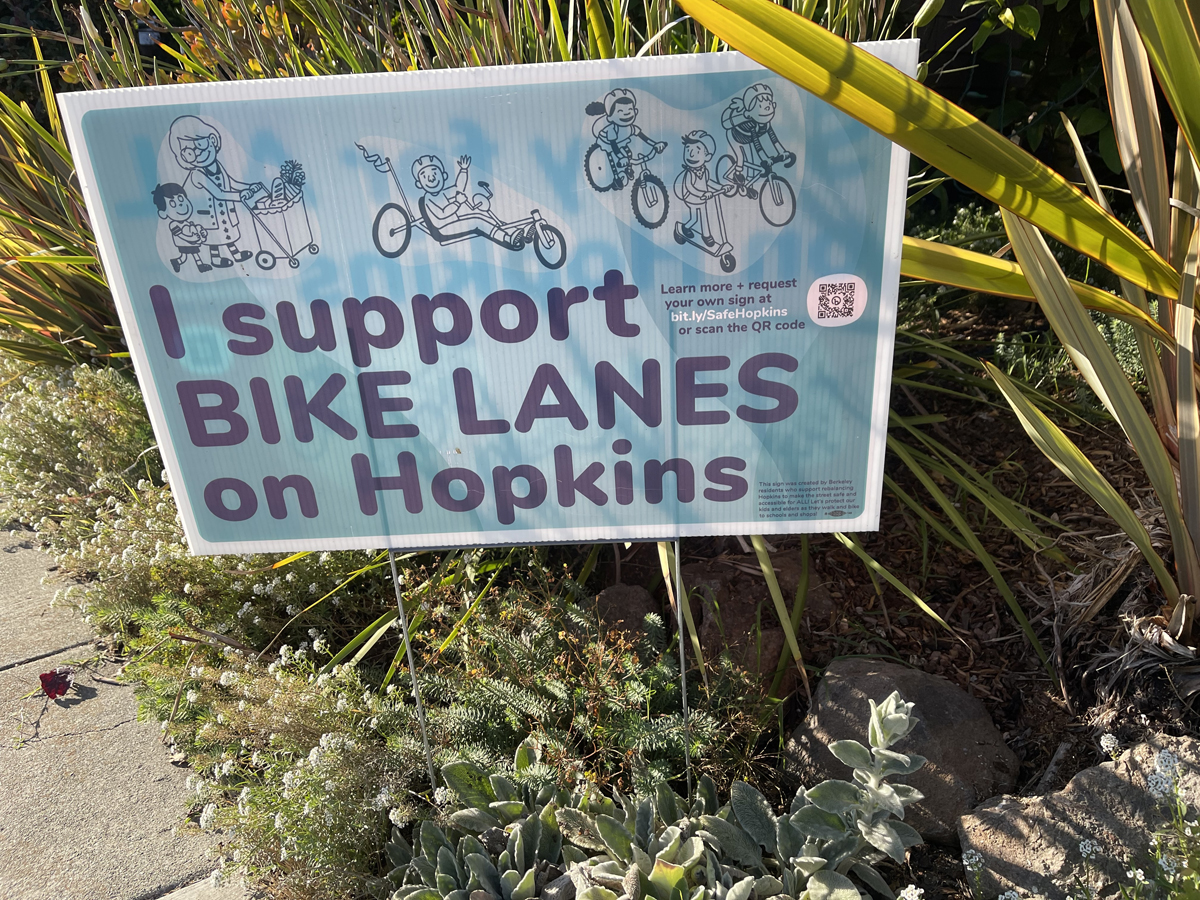
Of course, people are allowed to disagree without it being some cult issue, but the counterarguments in defense of automobile domination are rather selfish. It’s a weird switch that flicks on with otherwise empathetic people. Spending an extra 30 seconds to search for parking or 5 extra minutes driving makes drivers go nuts in ways extra time for everyone else doesn’t. If we can’t do bike improvements in an educated city like Berkeley, where can we do it? If we can’t get congestion pricing in New York City where a handful of commuters drive, where can it be implemented in this country?
40,000 people are killed by cars annually; 100,000 are injured and millions die from exhaust pollution. Yet it just isn’t a problem for people and that’s depressing. People’s minds have been so warped by generations of fossil fuel and automotive lobbies. An entire generation on a family tree — a mother, father, and their kids — were obliterated by a reckless driver in San Francisco at a major transit hub. The local businesses didn’t respond by making it easier for most of their customers to patronize without parking or driving. They defended the right for a small minority of their customers to take their vehicles at high speeds full of areas where children walk, people ride bikes, and transit riders congregate.
I don’t know how else to describe that other than cultish.
And critics respond by saying: well, it’s America, people have to drive. But they don’t! They have to because these people make it so. When valuable public space is given exclusively to cars, of course, alternatives are not competitive! It’s very straightforward issue yet otherwise sophisticated people suddenly get overridden by the cult and clutch to their parking spot and highway lane, no matter how many people die to maintain it.
—
Rest In Peace to Yuan Cong, a man on a bicycle who was killed by a driver at an intersection in Berkeley, California (Virginia Street and San Pablo Blvd) that had 32 collisions and injuries before him. It took another person being killed after Yuan was hit for the city to bother activating the inactive safety signal after building it. The family is rightly suing the city, and I think victims of traffic violence must sue cities until people’s lives, not the ability to speed, are prioritized in traffic engineering.


